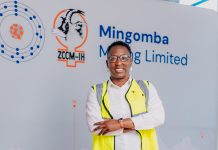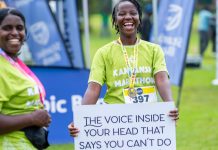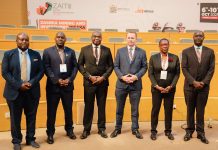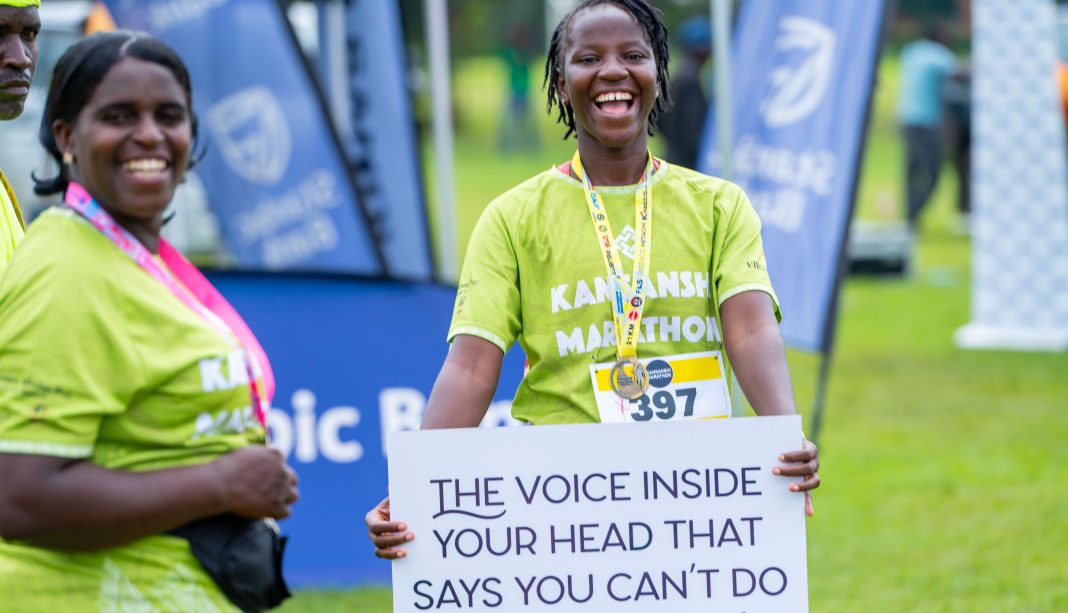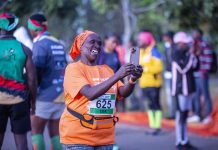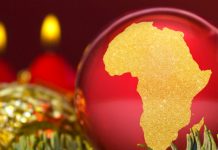Little more than a few years ago, runners were a rare sight in the town of Solwezi. Nowadays, when Collins Mbimbi goes for his weekly Saturday run, a crowd of novice runners tends to follow in hot pursuit, hoping to keep up with the speedy Kansanshi athletics team champion.
This is the story of how one mining company’s efforts to promote running have fuelled the growth of a homegrown culture around fitness and health that’s changing people’s lives.
***
“I did my first running race in 2018,” says Mr Mbimbi. “Theresa lent me her watch so I could keep an eye on my time – she even had to show me how to use it!”
In those days, Theresa Roomer was working closely with her colleague Ryan Ellis, Kansanshi Sports Foundation’s Coordinator at the time. An avid runner himself, Mr Ellis’ vision of promoting running in Solwezi was starting to take shape.
“Running is the most accessible sport for people to take part in,” explained Mr Ellis. “That’s why, in around 2018, we began making running a focus at Kansanshi Sports Foundation.”
The plan had a two-pronged approach. The first was nurturing promising runners like Mr Mbimbi by adding them to Kansanshi’s elite running team, where they receive expert coaching and guidance. The second was setting up an academy to provide running programs at eight secondary schools around Solwezi, where members of Kansanshi’s elite running team – like Mr Mbimbi – could coach promising young runners.
Then, in 2023, FQM Kansanshi took a leap. The mining company, through the Kansanshi Foundation, sponsored Solwezi’s very own internationally accredited event: the inaugural Kansanshi Marathon. And, since then, Solwezi’s community has been gripped by running fever, and the sport has taken on a life of its own.
International recognition, local pride
The annual event includes three distances – the 5km fun run, 10km race, half marathon (21.1km), and full marathon (42.2km) – each of which is measured to international standards. The event is also accredited by the World Athletics Association, so that participants can use their finish times to qualify for events worldwide.
This year, on 3 May 2025, the third annual event saw just over 2,000 runners take part. For the first time, it included wheelchair and disability categories in the 5km race, with 28 inspiring participants joining at no cost.
What started as a local initiative has blossomed into an event with international recognition.
“This isn’t just a one-day event,” explains Eugin Kasempa, Kansanshi’s Community Sports Liaison. “It’s shifting perspectives in our town about what’s possible, especially for youth and women. There’s a ripple effect – even among those who aren’t running. People are inspired to be active, to show up, to cheer, and also to dream a little bigger.”
Many of them also come to see one of Solwezi’s star athletes, Elizabeth Mukoloma.
“This isn’t just a one-day event. It’s shifting perspectives in our town about what’s possible, especially for youth and women.”
People walk long distances to come and register for the annual event, says Mr Kasempa. “Some of the people we meet at our local registration events might not have a smartphone to get themselves registered online,” he explains. “For me, the beauty is in the effort of showing up. And, when they come, they’ll tell you they’ve heard about the Kansanshi marathon and the program that we have in the government schools. They also talk about how motivated and inspired they are by Elizabeth Mukoloma and her story.”
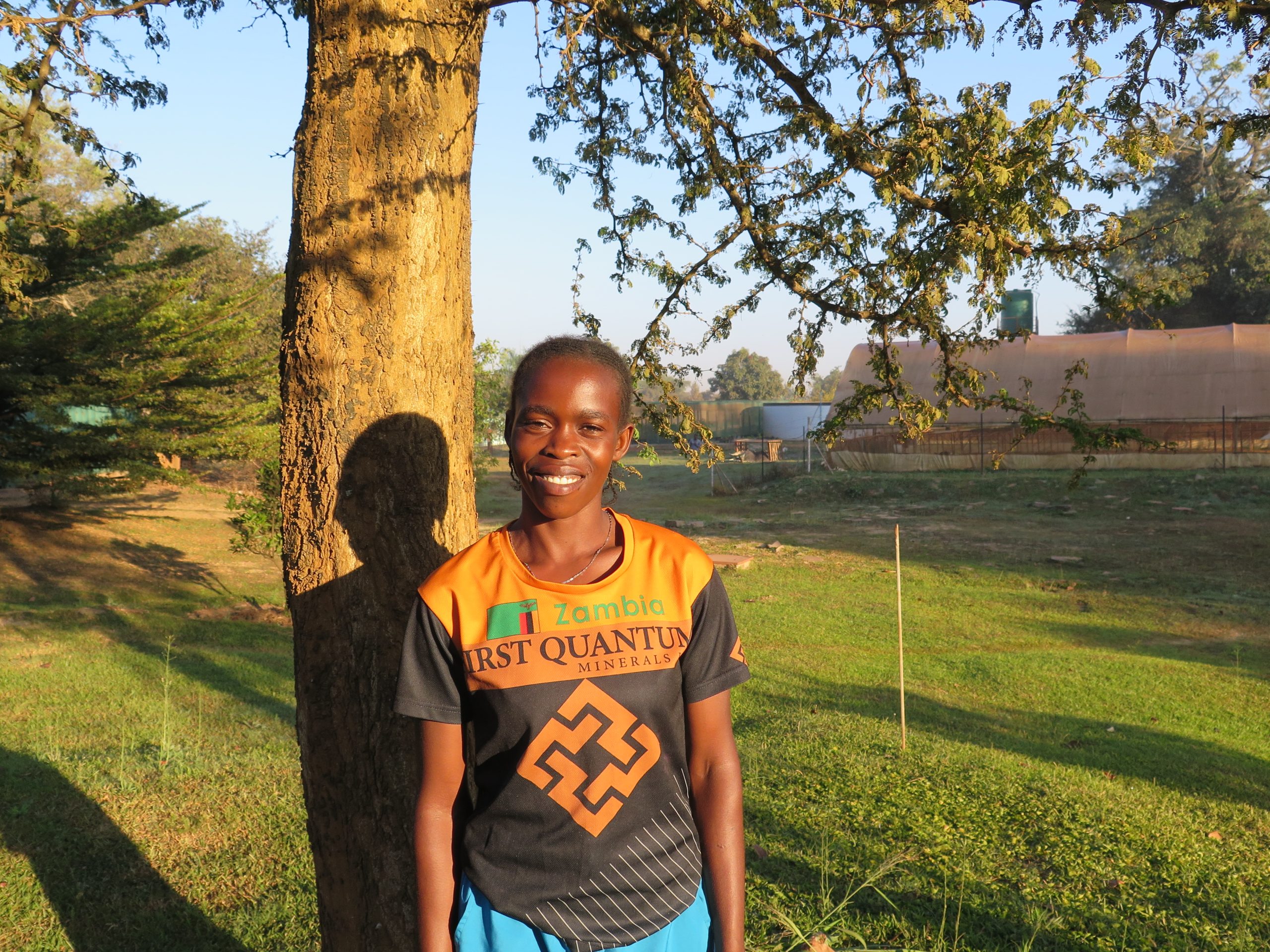
Breaking barriers, breaking records
Ms Mukoloma had only been running for a few years when she finished the 2023 Kansanshi half marathon (21.1km) irresistibly close to Zambia’s national record for this distance. Since joining Kansanshi’s elite running team, she’s become the national record holder for the full marathon (42.2km). And, this year, she won the women’s Kansanshi full marathon (42.2km), finishing in an incredible 03h17m, once again cementing her status as one of Zambia’s premier athletes.
Meanwhile, Collins Mbimbi has made massive strides since joining the running program. “When I ran my first marathon, it took me around four hours to finish,” recalls Mr Mbimbi. “Last year, I completed the Kansanshi Marathon in 03h26m. This year, I managed 03h01m.” With determination in his eyes, he adds, “Next year, my target is 02h40m.”
Ripple effects
Both Mr Mbimbi’s determination and his enthusiasm for running seem to be contagious. “I’m a local person – born and bred in Solwezi – and, honestly, I would say that Kansanshi’s running programs and the marathon have contributed to an attitude change in at least 70% of local youths. Today, almost every youth wants to run.”
Solwezi’s running fever has spread beyond the city’s youth too. “For the first time, we have a club: the Solwezi Fitness Club,” Mr Mbimbi explains. “It’s more for older people who do their workouts after work or on weekends – and I’m also a member there. Do you know how it started? People tried to participate in the Kansanshi marathon for the first time without training well, and now they feel they need to train properly so they’re able to finish the race.”
Mr Mbimbi has also met a separate group of people who’ve recently opened a running club called the Solwezi Academy. “They want to prepare for the 2026 Kansanshi marathon.”
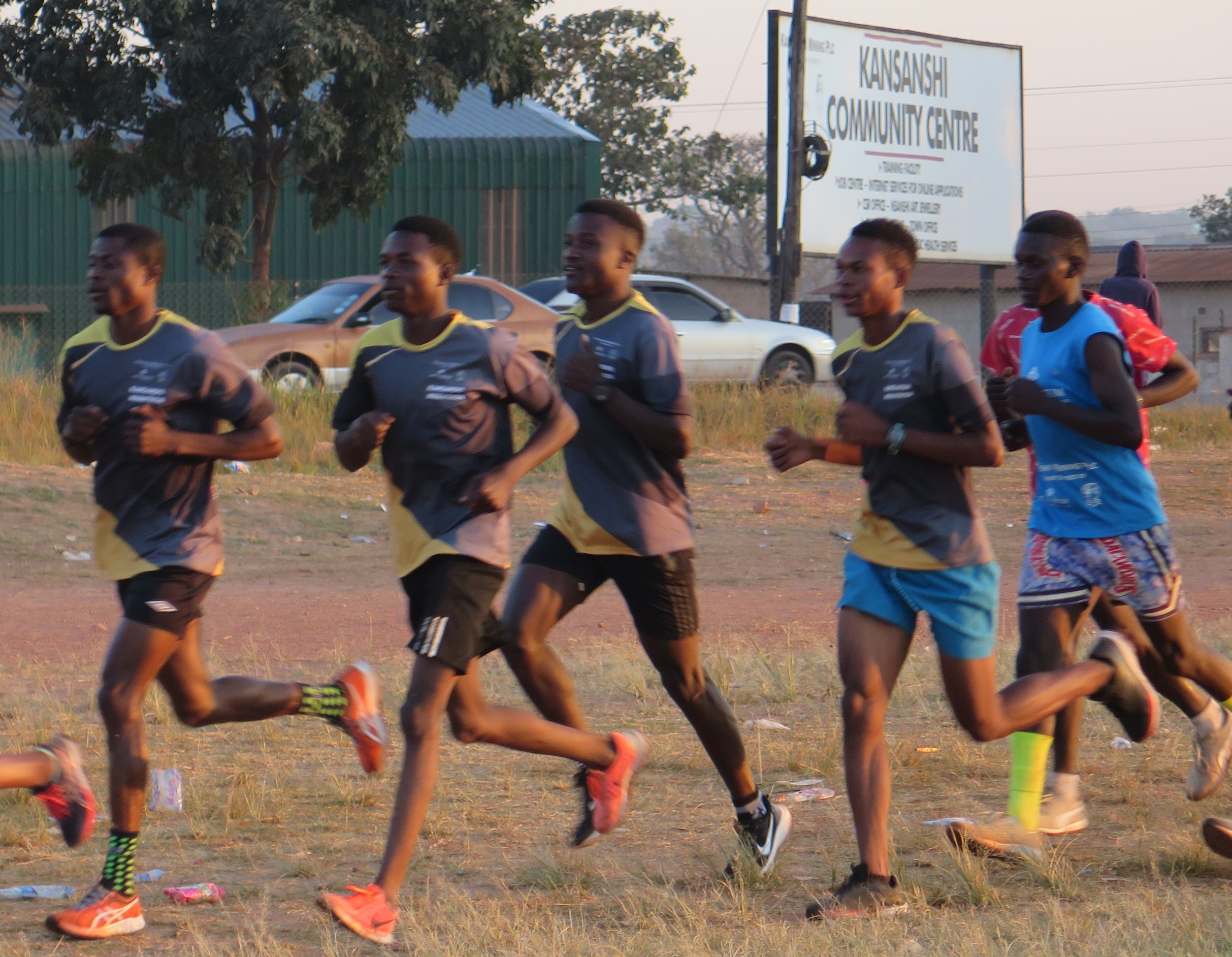
Beyond inspiring Solwezi’s community to prioritise their health by getting fit, the positive influence of taking up a sport also has the power to keep the youth on the straight and narrow. If you’re getting up to train on a Saturday morning, you’re far less likely to be out drinking alcohol or being tempted by other vices the night before. Statistics show that hard drug use on the continent is on the rise, and an accessible sport like running – coupled with the supportive culture that’s taking root in Solwezi – can keep youths on the right path.
‘How did you become such a strong runner?’ Mr Mbimbi is asked on a regular basis. “I tell people: I don’t drink and I don’t smoke because, if I drink, I can’t run,” he explains. “Because I work and train, I don’t have time to go out clubbing and doing all these sorts of useless things.”
‘How did you become such a strong runner?’ Mr Mbimbi is asked on a regular basis. “I tell people: I don’t drink and I don’t smoke because, if I drink, I can’t run,” he explains.
Virtuous cycles
By setting up academies where members of its elite running team are paid to work as running coaches in schools, Kansanshi is creating a virtuous cycle.
Gift Luyanga is one example of a young athlete who showed promise and is now having a positive impact on other young runners’ lives. He joined Kansanshi’s running team ten years ago, at age 16, when he began competing in distances like 200 and 400 metres. This year, he placed fifth overall in the Kansanshi marathon (42.2km) event, with a time of 02h27m.
Since he started training learners at Kansanshi’s schools-based running academy, he’s also become a star coach. “I love coaching. That’s my talent,” says Mr Luyanga.
He loves seeing kids reaching their potential, he explains. “So far I’ve produced two athletes, one boy and one girl. She’s like Elizabeth [Mukoloma]. Her name is Thelma Kayinda.”
Ms Kayinda was a shy 13-year-old when Mr Luyanga met her in 2023. Since then, he’s been training her and some of her classmates three times a week – and, steadily, he’s seen her confidence grow.
“Now, she’s not shy – she’s a champion,” he says. Ms Kayinda secured second place in both KCM’s 10km event earlier this year and Kansanshi’s 10km event. The teenager’s advice to would-be runners? “Put in more effort and never give up!”
Thanks to a potent mix of talent, determination and coaching, you can bet that, in the years to come, young learners like Ms Kayinda will – like Elizabeth Mukoloma – have laid the foundations for greatness, and be an inspiration to Zambians of all ages.
See also: More than a marathon








